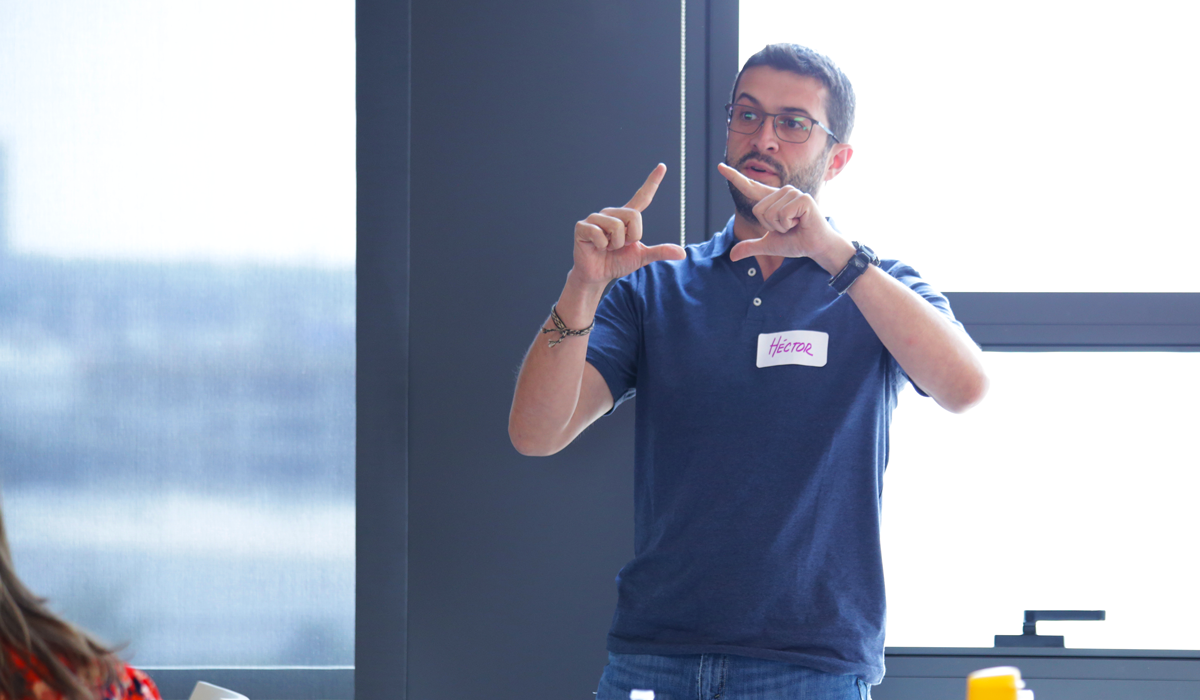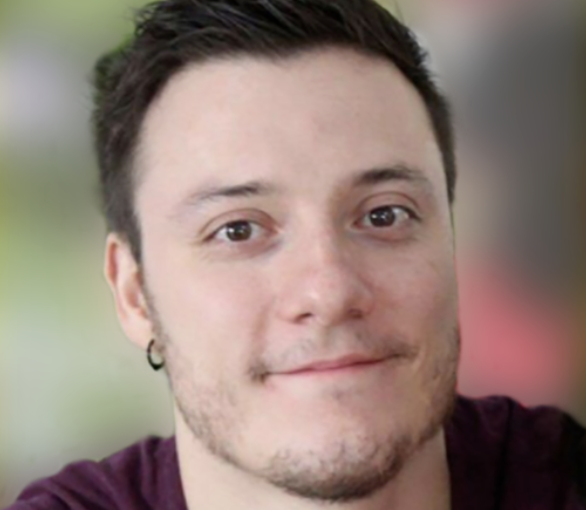Workshops—focused collaborative sessions where teams and stakeholders meet. We’ve all been there. There are always mixed feelings when you are invited to a workshop. Some people suddenly feel brutally tired at the mere thought of spending eight hours imprisoned with a group of colleagues. Others are more positive and think about the fact that they will break the monotony of their work routine with a different activity. Yet others, the few who have witnessed the work of a talented facilitator, dare to dream of spending some of the most productive working hours finding innovative solutions.
The value of a workshop facilitator
Not long ago, a peer shared an anecdote about a customer questioning the choice of facilitators for a workshop, which was upsetting to hear. Not because of the questioning, that is always a healthy practice, but because the questions being asked had nothing to do with the most important qualities to look for in a facilitator. This has not been the only time I’ve heard and experienced such a situation. It is interesting to see that not every stakeholder, manager, client, or leader believes in the importance of such an essential player and will question the need for a facilitator.
I blame it on the term we use: “facilitator.” A person who assists and enables the work of others. It sounds like assisting doesn’t require a particular set of skills. Why not just have any colleague assist for the day? What makes a facilitator valuable?
A team involves several people associated in some joint action. So, who of these people will:
- Coordinate and plan the team’s actions?
- Provide a safe basis to give voice to every team member?
- Ignite the team’s energy when all seems lost?
- Make magic happen and create something greater than the sum of the team’s individualities (1+1=3)?
- And above all, who will have enough credibility to lead this effort until the very end?
A productive workshop requires more than just an assistant. It is, without a doubt, a team sport, and facilitators are the coaches.
Sports are a great analogy to understand our sometimes-irrational human behaviors. A microcosm that reflects human nature and dynamics; what takes days or months to show itself in the real world happens within seconds on the field. The true character, the virtues, and defects, the passion, the fear, the hunger to achieve, the desire to go beyond…all happen within the lifespan of a sports match.
So what does it take to become the winning team during a workshop match?
The highest cost of a workshop? Time invested.
Being on the Board of Directors, deciding which coach will lead the sports team for the next season must be nerve-wracking. The fate of the following months depends heavily on this. Money, people, time, emotions, and fans are all part of the investment.
There are several resources invested in a workshop. How much is each person in your team worth per hour? Sometimes workshops last days. Materials for the workshop are the cheapest part. Any existing project needs to be put on hold as the team’s attention is elsewhere. The new ideas that come from the workshop could direct the company’s future.
The coach’s job seems simple: shout orders, call a player from the bench, adjust the position of the team on the field, and celebrate passionately every time the team scores. As the team adapts to the changes, the audience enjoys the new dynamics and dreams of the pleasures of holding up the winner’s cup.
The truth is, a lot of planning and expertise goes into preparing a team for a workshop. Understanding the problem, asking the right questions, identifying who will join the team, having a feel for the current climate around the problem, tweaking the strategy and tools to best guide the team with the time and resources available. All of this evidence of the invaluable role of an active facilitator.
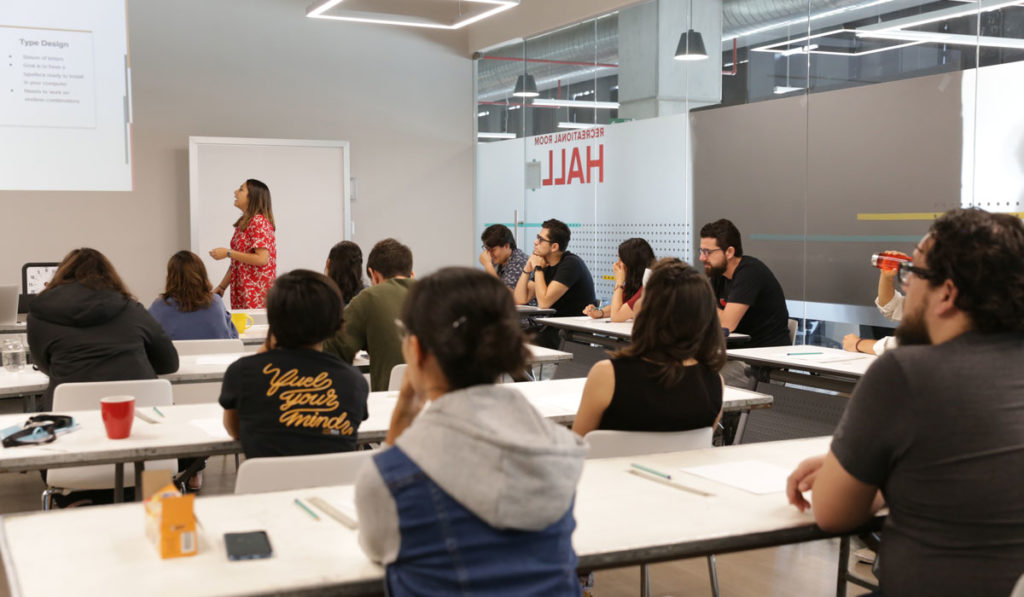
1 + 1 = 3
What a joyous experience to watch an underdog team rise through the ranks and become living proof that the whole is greater than the sum of its individual parts.
No team is free of internal conflict. Establishing clear and open communication will go a long way towards reducing friction. Harmony allows people to cooperate and concentrate on generating solutions. As the team members interact, sharing ideas, a vigilant coach will tune in into each individual’s talents and get a feeling for how she or he can fit into the symphony. A facilitator can keep the ball rolling, orchestrating and building upon the strengths of the individuals in the workshop.
A tight-knit team is almost telepathic. Players guess each other’s moves, defenders and attackers advance, and retreat in unison. You see, a mid-rank team can crush teams with multi-million superstars. Small startups can go head to head with industry giants. The key to communication: give a voice to everyone. Introverts, extroverts. High ranking, low ranking. Technical, creative. Sales, engineering. Business strategists, design strategists. One can imagine the difficulty of achieving such cohesion. Changing roles, changing names, limiting discussion time, purposefully calling out the introverts to participate, and asking extroverts to allow others to contribute. It is up to the facilitator to pull the strings and apply the correct tools and techniques, to obtain the maximum output.
Once the match starts, all that fuel that was generated with expert bonding frameworks might need some nitro injection. As the workshop deadline looms near, as the chants of enthralled fans fade away in the face of mounting pressure, it is up to the coach to ignite the group’s energy. Perceive, measure, and ignite. Ask yourself:
- Has the energy flatlined?
- Are people looking frustrated?
- Are ideas just being thrown around to get over the workshop?
- How far are we from a possible solution?
- Has a single member stolen and controlled the conversation?
- Are there conflicting interests?
Perceive, measure, and ignite. Give the team a break. Get the creative juices pumping with a lightning idea exercise. Let the team visualize the future of the product they’re creating. Excite their mind’s eye with possibilities.
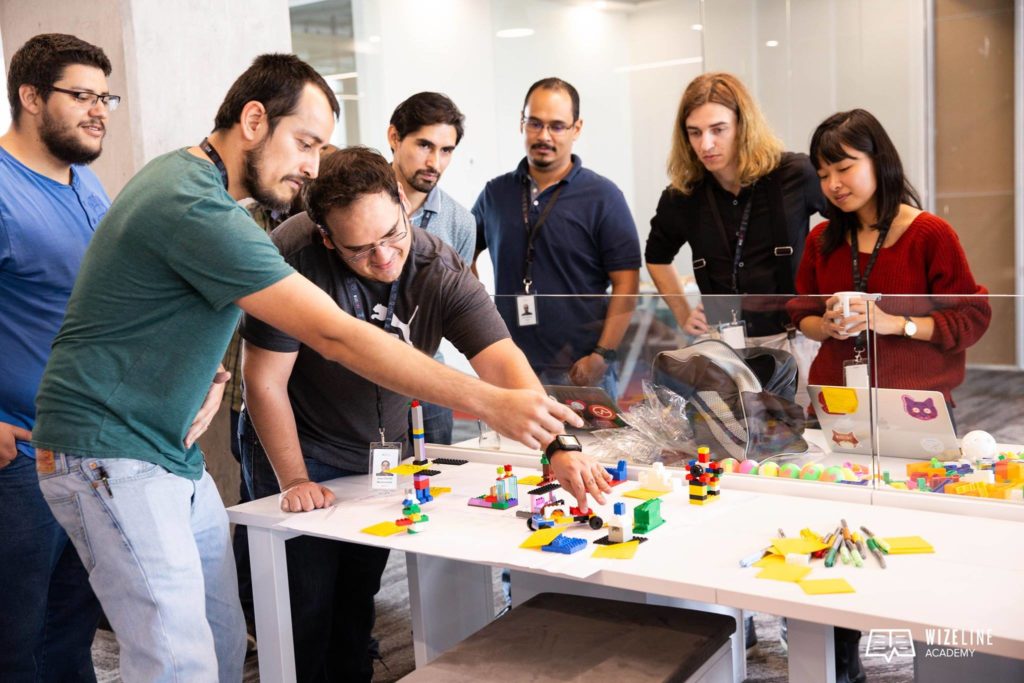
On Credibility
Tough decisions and quick maneuvering of a team rely on the facilitator’s credibility. The challenge is upended here. Unlike a coach who might have more time to prove his worth to the team, a facilitator will have minutes to earn that credibility. Experience and trajectory can serve as a quick-start, but during the hands-on scenario of a workshop, actions speak louder than resumés. Minute by minute, as challenges are surmounted, as the vision of a great solution to the established problem is completed, the facilitator secures the fragile tunic of credibility.
A team that has faced stiff competition, staying within its comfort zone, will fear a challenge to the status quo brought by a new coach. A company investing its resources on a multi-day workshop may face this same fear of failure. Fear endangers creativity. Concise, clear instructions project a precise understanding of the outcomes that are being sought out. The team’s cognitive load decreases with these indications, and the energy is focused away from fear and unto solving and ideating.
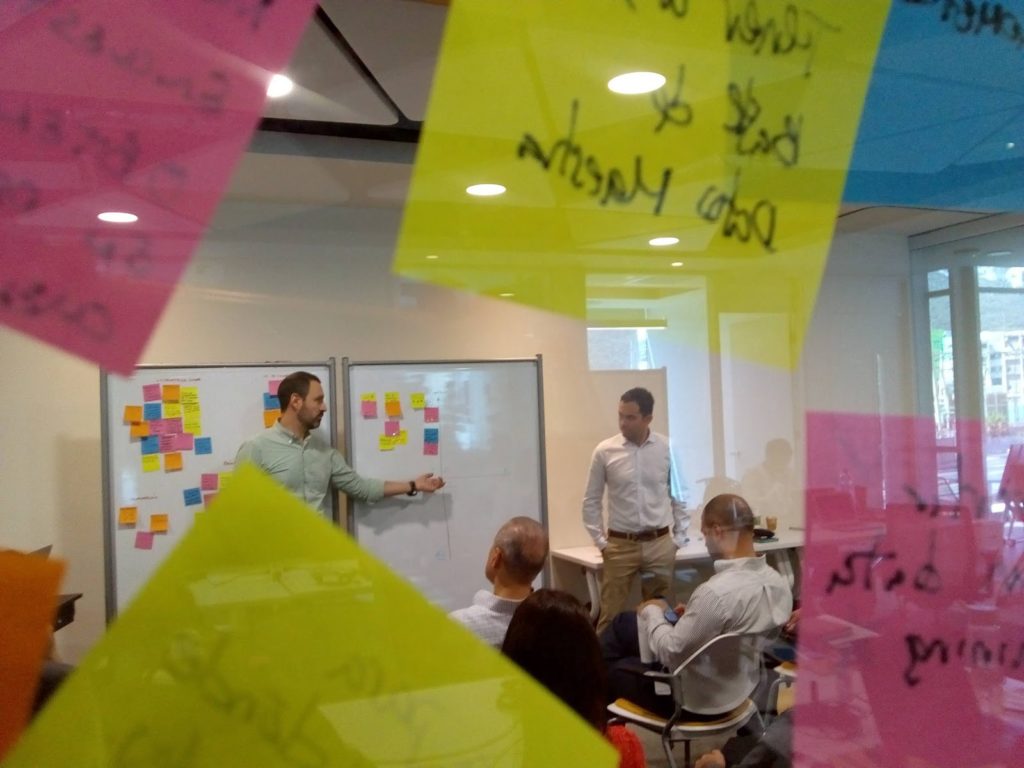
There is one more characteristic only a formidable facilitator can bring to the table. Who has ever cheered on a match that felt rigged to end in a particular score? Why even watch? The same goes for a biased workshop. For example, if everyone knows that the CEO’s agenda will be pushed in the workshop, it will feel like a charade and a waste of time.
Coaches are highly valued assets. They bear a burden. Unspoken pressures from stakeholders, fans, team members, the tournament itself, demand an intelligent deployment of expertise, tools, and charm.
Coordinating and planning the team’s actions, providing a voice to every team member, igniting the team’s energy on critical moments, creating something greater than the sum of the team’s individualities. And above all, establishing credibility to lead this effort until the very end.
Next time you marvel at a blog post detailing the success story of a delightful product, and how it has managed to succeed, remember that it may have started with a skilled facilitator. If you’re curious where you can find design, product, and strategy workshop facilitators with these characteristics, we may know a few! Visit wizeline.com/workshops for more information or request a workshop quote here.
